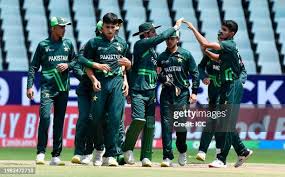Understanding Pakistani Heritage and Its Cultural Significance

The Importance of Pakistani Heritage
Pakistan, officially the Islamic Republic of Pakistan, is a country rich in culture and history, formed in 1947 following the partition of British India. With a population exceeding 230 million, it is the world’s fifth-most populous country. Its unique position at the crossroads of South Asia, Central Asia, and the Middle East makes it a melting pot of cultural influences.
Cultural Diversity
Pakistan is home to a multitude of ethnic groups, with the largest being Punjabis, Sindhis, Pashtuns, and Baloch. Each group contributes to the country’s linguistic and cultural tapestry, with Urdu as the national language and English widely used in government and education. Diverse languages, such as Punjabi, Sindhi, and Pashto, reflect the rich traditions of these communities.
The inherent diversity is evident in Pakistan’s festivals and celebrations. Events such as Eid al-Fitr, Eid al-Adha, and Basant (the spring festival) showcase the intricate traditions and communal spirit that resonate across the nation.
Art and Literature
Art and literature thrive in Pakistan, reflecting its history and social fabric. The country has produced notable poets like Allama Iqbal and Faiz Ahmed Faiz, whose works explore themes of identity and nationalism. Pakistani art, from traditional truck art to contemporary visual expressions, captivates both locals and international audiences. The Pakistan National Council of the Arts plays a pivotal role in promoting these forms of cultural expression.
Significant Contemporary Events
Recently, Pakistan has made headlines due to its ongoing social and political transformations. The resilience of its people, mirrored in the creative fields, has drawn global attention. Cultural initiatives, such as the Lahore Literary Festival and Karachi Biennale, aim to foster artistic collaboration and promote cultural dialogue within the region.
Conclusion: The Significance of Pakistani Culture
Understanding Pakistani heritage is vital, not only for appreciating its internal diversity but also for acknowledging its contributions to global culture. As Pakistan navigates contemporary challenges, its rich traditions and vibrant cultural expressions continue to foster a sense of identity and unity among its populace. For readers, recognising the significance of these elements offers valuable insights into a nation that is often viewed through a narrow lens.









